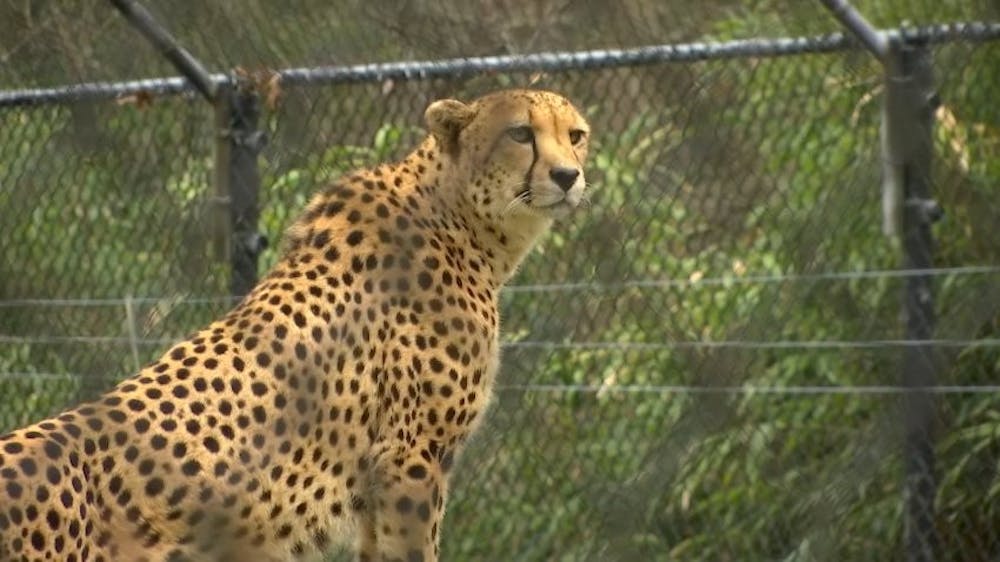Back in April of last year, people watched from their windows and envied the freedom enjoyed by the raccoons, bears, and moose that roamed in the streets, claiming them as their territory. Countless stories of animals ending up where they’re not supposed to be — from sea lions sitting outside hotels on San Cristóbal Island, to goats jaywalking the streets of Llandudno, Wales — made news all over the world. However, compared to this small degree of freedom — if we may call it so — gained by these creatures, the suffering that many animals experience has only become more severe due to the pandemic.
Let’s dedicate this Earth Day to the animals who have always had it much harder than humans, especially in this past year.
At the beginning of the pandemic, there was a surge in abandoned pets as rumors spread that dogs and cats could be carriers and spreaders of COVID-19. One owner, in fear of contracting the disease from his pet, threw his pet dog from a high tower, resulting in the poor creature’s death. But this is far from all, as animal abuse isn’t just limited to the physical form; there is a mental aspect as well. Zoos are the embodiment of such evil — confining animals in a zoo is a form of physical abuse that results in psychological problems for the animals.
Last fall, I visited a zoo with my friend for the first time in years. The experience shocked me. It was a scene full of heartache. What had been a place of curious wonders to me as a child had turned into a scene of heartless cruelty.
Inside one studio, a tiger lay on its side, facing away from the glass. The proud conqueror of tropical African grasslands and the mysterious wild was now reduced to nothing but a stash of flesh suffocating in its exhibit — merely a prettier name for a jail cell. No doubt when they were first cast into their newly furnished jail cells, the tigers crawled and raged. But time was a fitful, fickle thing. It could dampen longings, erase ambitions, and dull their sharp gazes until all that was left was to sleep, eat, and breathe, with an occasional yawn eliciting excitement from the crowd. No thrill of the chase. No wind to ruffle up their manes. Everything was eerily still.
The animals were bored and lonely. But bored and lonely is a much better situation to be in than some of their companions. Humans, after removing these animals from their natural habitats, have not taken proper care of them, especially during the pandemic. Some unfortunate animals caught COVID-19, and as a direct result of lockdown and zoos’ loss of income, many are starving. To “solve” the starvation problem, Germany’s Neumünster Zoo said they would have to kill the animals via euthanasia, or “at the worst … would have to feed some of the animals to the others.” But what horrendous crime have these animals committed to deserve such a punishment?
Put yourself in their situation. Rather than asking you to imagine yourself in jail, let’s pick somewhere nicer — the comfort of your room, just like during quarantine. When cities and countries around the world implemented lockdowns and stay-at-home orders to prevent the spread of COVID-19, people reacted in protest. Even the mandatory 14-day quarantine for travelers sounded like a dreadful idea. People went out of their way to hold social gatherings — standing six-feet apart in parking lots and hosting drive-thru birthday parties, doing anything to leave the finite space of their homes for just a while.
But with life gradually returning to normal, let’s not forget the experiences of so many zoo animals during lockdown and the inconceivable lives of the 70 billion animals raised in factory farms every year.
Indeed, factory farms are another site of animal abuse. When COVID-19 found its way into slaughterhouses across the United States, millions of chickens and pigs were killed en masse. But perhaps such a death was a better option for them than suffering through every moment of this brief life on Earth. Male newborn animals are killed shortly after birth for meat, and while the females have longer to live, they are artificially inseminated for the production of milk, eggs, and the next generation of animals who then has to suffer through the same cycle.
It pains me to describe this to you, and still, just one look at a photo of these animals will exceed what I can deliver with my words. And if the urge to ease these animals’ sufferings does not already establish the need to stop factory farming animal cruelty, consider the fact that factory farming is a major risk for future pandemics. The source of the 2009 H1N1 swine flu pandemic? A factory-style pig farm. The source of the 1990 and 2006 HPAI avian epidemic? Industrial poultry farms. It’s a lose-lose situation.
Proposing to completely stop factory farming is an inviable solution and will only sound empty. But as Princeton students, there are still many actions we can take. We can choose to avoid zoos and meet the animals in their most comfortable habitat in the wild. We can choose on an individual basis to boycott products of animal husbandry and decrease the demand for them, even if by a little; finding out where the University sources its animal products would be a good place to start. We can choose to raise awareness of the harms of zoos and factory farms, and other sources of animal cruelty. We can choose to fight for legislation on the welfare of animals. On Earth Day 2021, lend your voice to the animals.
Kelsey Ji is a first-year from Cambridge, Mass. She can be reached at xingej@princeton.edu.









